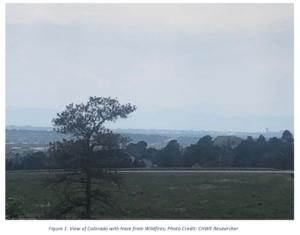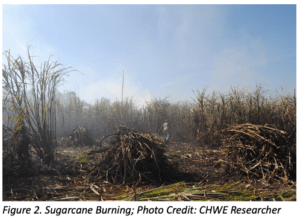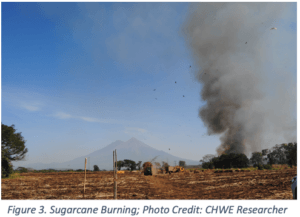New initiative at University of Colorado connects climate, work, and health
There is no denying it—climate change is bringing the heat. As the Pacific Northwest experiences one of the most significant heatwaves ever recorded, we are all reminded of the discomfort and disruption that extreme temperatures bring. But if you are one of the many workers in the U.S. or around the world who work outdoors, extreme heat is not just uncomfortable; it can pose a significant risk to your health. These health risks make workers in certain industries more susceptible to the consequences of climate change, including those working in agriculture, construction, mining, and forestry. In places like Central America, climate change is a suspected contributor to diseases like Chronic Kidney Disease of Unknown Origin (CKDu), as increased temperatures, in combination with higher humidity levels, can lead to significant dehydration in outdoor workers, even within just a few hours of a shift’s start. Beyond dehydration and heat stress, evidence suggests that other risk factors from the environment, such as air pollution or contaminated water supply, may contribute to kidney damage in these workers.
For researchers at the Center for Health, Work and Environment (CHWE) at the Colorado School of Public Health, the connection between climate, work, and health is hitting especially close to home. Despite a long, wet winter and spring, the official start of summer 2021 in Colorado has brought with it several large wildfires. These fires pose an immediate danger to wildland firefighters who are working hard to protect wildlife and homeowners caught in the fires’ path. These fires also have impacts on Coloradans statewide, bringing smoke and ash to Coloradans even hundreds of miles away. Researcher Kathy James notes the change in view from her home this time of year (pictured below – Figure 1), as wildfire smoke can often create a dense haze. Smoky skies do not just ruin the mountain views that many Coloradans cherish—they bring with them health risks, ranging from skin and eye irritation and difficulty breathing in the short term, to cardiovascular, respiratory, and neurological problems in the long term.


With climate challenges at home and abroad in mind, CHWE researchers are embarking on a new venture to directly address the intersection between climate, work, and human health by launching the Climate, Work and Health Initiative (CWHI). CWHI’s research focuses on the intersection of the workplace environment and consequences of climate change including heat, air pollution, altered precipitation patterns and water resources, and wildfires. For the past six years, CHWE has leveraged partnerships with a Central American agribusiness to develop, test, and implement new protocols for hydration, rest, electrolyte intake, health risk behaviors, and noise exposure to protect workers in their current environment and help them adapt to long-term realities. Kicking off the newest initiative is a large multi-year research grant to study how air pollution from burning practices and other sources may be impacting the health of agricultural workers in Central America. Simultaneously, CWHI is studying how weather patterns have impacted water quality and kidney health in Southern Colorado.
Agricultural workers in Central America and residents of Colorado share common threats from different mechanisms of climate change. In Central America, intense humidity, and agricultural burning practices (pictured below – Figures 2 and 3) may stand in stark contrast to Colorado-specific struggles like changing precipitation patterns, loss of snowpack, and persistent wildfires. Both represent the long fight we have in protecting human health. The relationship between our climate and how we work may look different, but the importance of understanding that relationship and developing strategies to mitigate potential harmful health effects holds true, no matter where we are located. As a public health community, we have a responsibility to balance our efforts to combat the negative health effects of climate change at home with a more global perspective. The work of CHWE and CWHI at the University of Colorado is finding that this local-global balance is not just the right thing to do – it’s opening doors for richer partnerships, better science, and climate solutions that are replicable in localities across the world.




Francesca Macaluso, Miranda Dally, Lyndsay Krisher, and Katherine A. James are all researchers within the Colorado School of Public Health and the Center for Health, Work and Environment, as well as APHA Climate for Health Ambassadors.